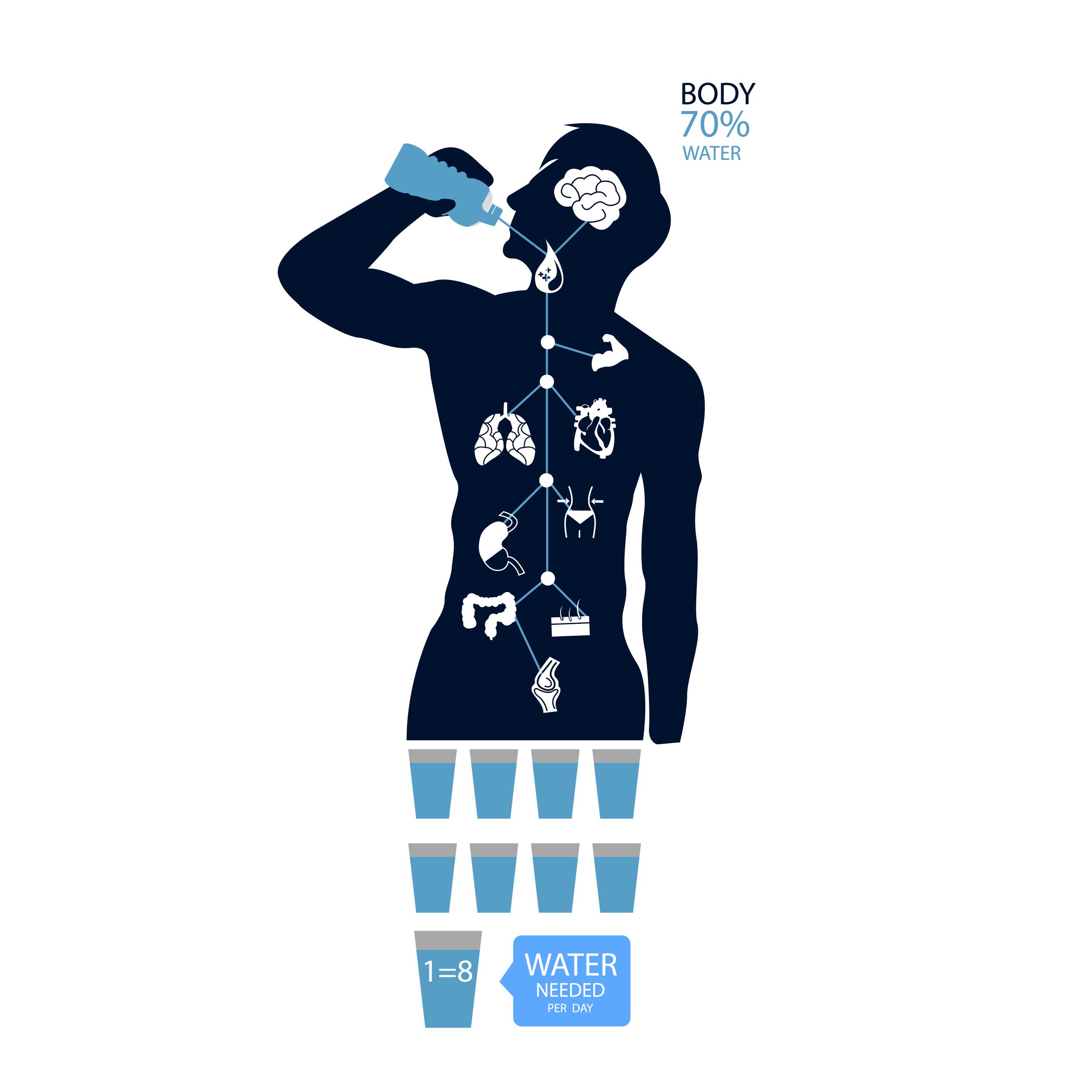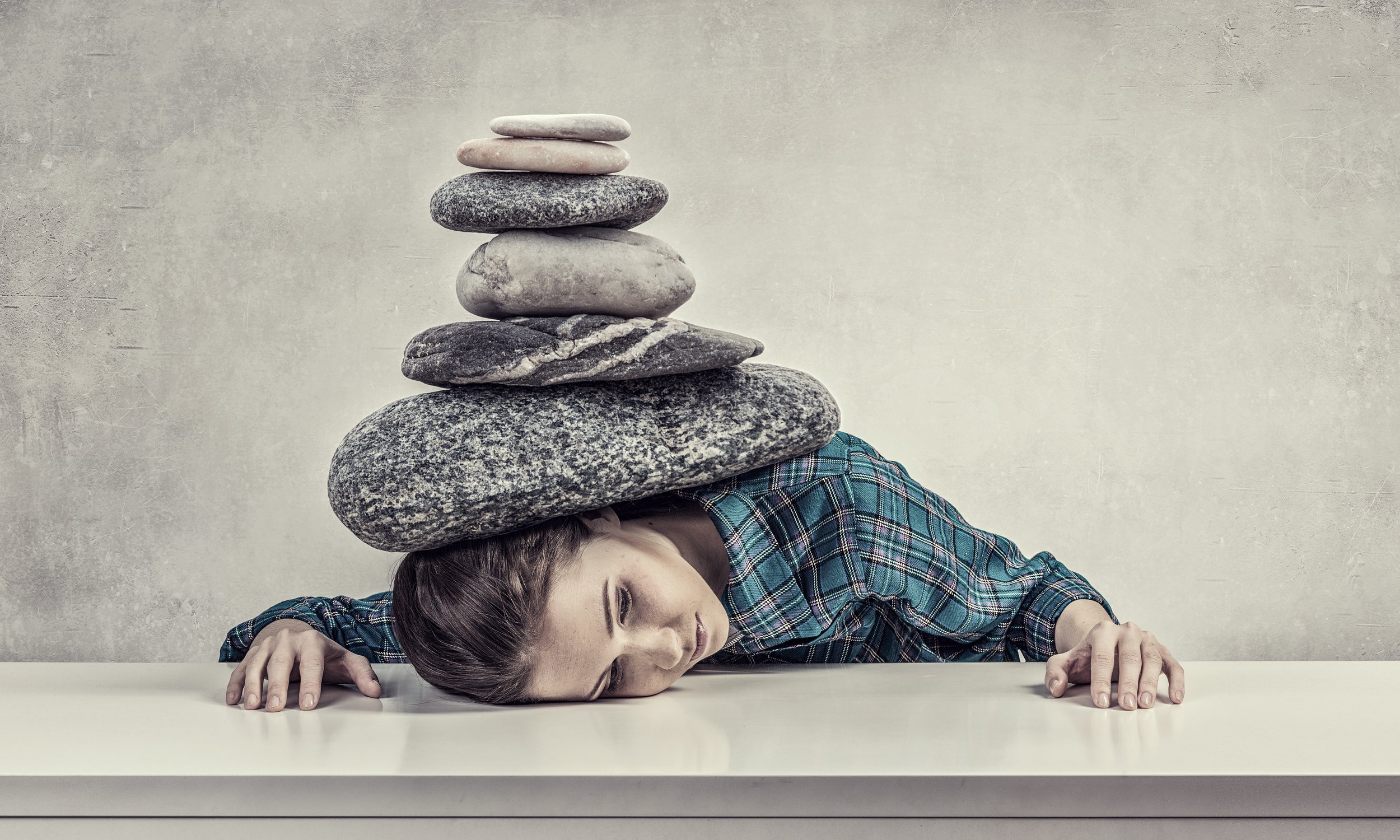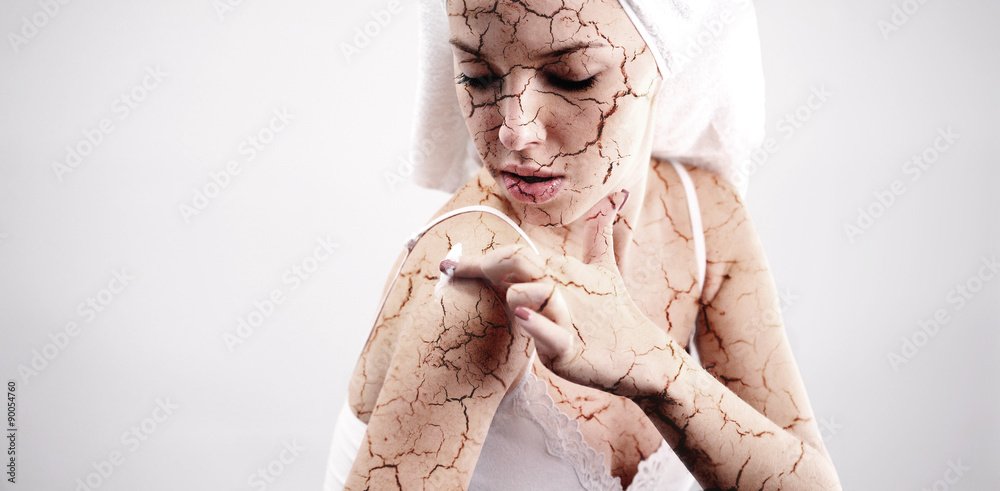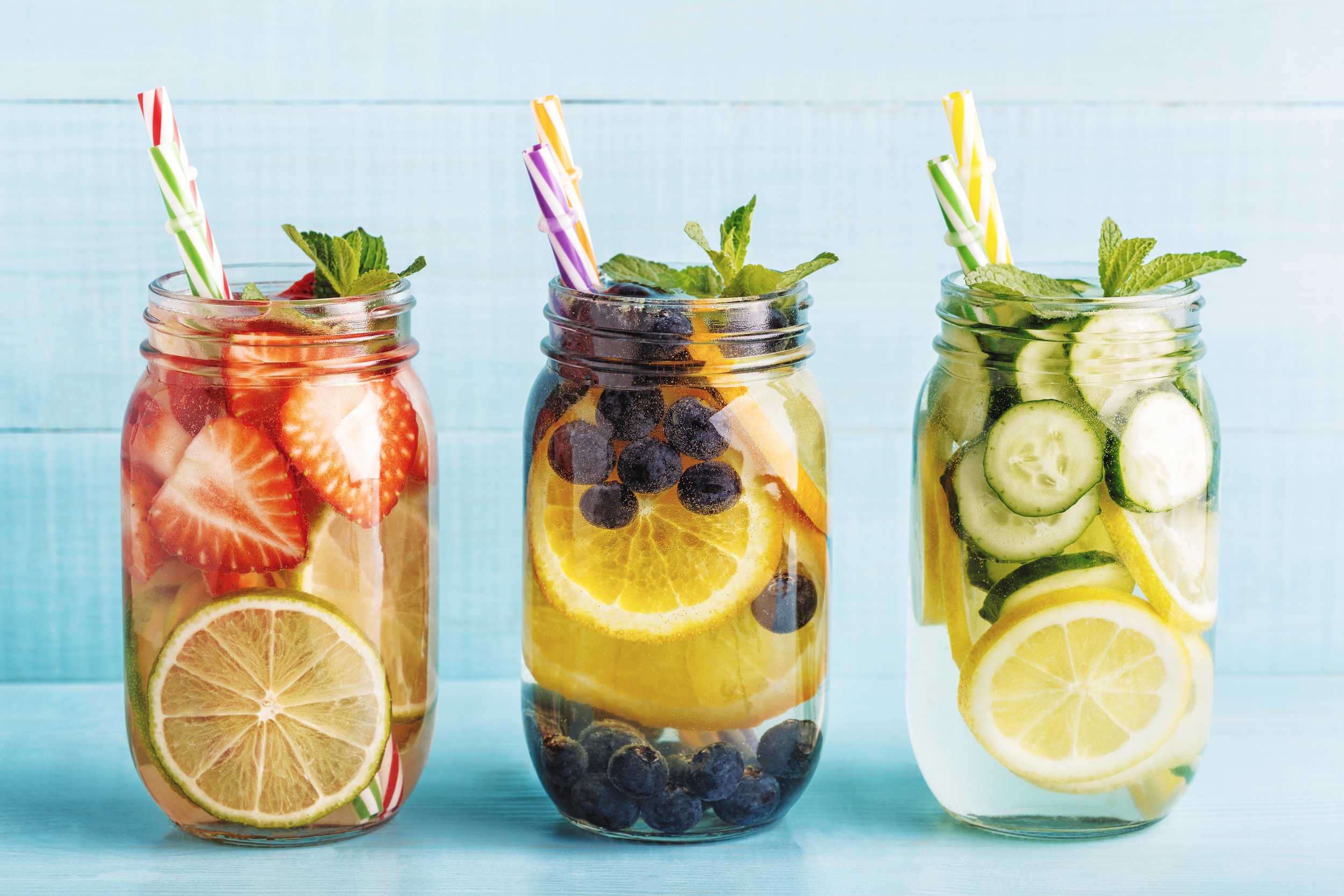Why Summer Hydration is Important
It’s been so warm here on the West Coast and the combination of an active lifestyle and no air conditioning can quickly lead to dehydration. Recently I went for routine blood tests and the practitioner had a difficult time finding a vein - we both agreed that I was dehydrated and should have had more water as part of my fasting for the procedure (she eventually found a vein after many uncomfortable adjustments).
Drinking enough pure clean water is one of the most important things we can do for overall health. Our bodies are composed of about 60% water (a rough estimate as it fluctuates based on age, weight, gender, etc.), and it works just like oil in a machine. Water is vital to every function in our bodies, from the nervous system to digestion. Most of our body's water content resides in our blood, muscles and brains, with the lowest water content in the teeth (approx. 8-10%).
Tracking your water consumption throughout the day will help you assess whether or not you are at risk of dehydration. Not surprisingly, many people find their consumption of water is too low and these low levels are exacerbated by disrupted daily routines - whether it’s a change in work environment (home or office), an increase in physical activity, illness, or a desire for a new weight loss regime.
Read more below to learn how your body uses water, signs of dehyration and great tips to keep hydrated!
Water helps with some pretty important functions in the body including:
Helping to regulate body temperature more easily
Removing waste
Cushioning joints and vital organs
Moistening oxygen in our lungs for breathing
Carrying nutrients and oxygen to our cells
Converting food to energy in our stomach
Helping to absorb nutrients in our intestines
Transporting glucose and oxygen to our muscles
When we are hydrated our cells are better able to fight illness, we have better memory and more focus as our cellular connections in the brain are increased, we can fall asleep more quickly and stay asleep, and we will have more elasticity in our muscles allowing for more mobility.
Water also helps with our external appearance by giving our skin a healthy glow, and plumping up skin cells so we have softer skin with less wrinkles.
Water is vital for our health and wellbeing. It affects our body and mind, allowing us to do all the fun activities we love to do.
What happens when we don’t drink enough?
Even small changes to our water levels can have a big impact on our lives. A mere 5% drop in water levels can cause 30% loss of energy and slow down metabolism. Under-consumption of water is the most common cause of dehydration, followed by consuming caffeine and/or alcohol. Medications for blood pressure can also affect hydration levels as they are diuretics and can cause loss of water. Pregnancy, exercise, hot climates, emotional shock or trauma, mental and physical stress, sweating, vomiting, and diarrhea can all have an effect on hydration.
Sometimes we don’t even know we have become dehydrated. We mistake signs and symptoms of dehydration for other issues such as:
Fatigue - feeling tired
Impaired performance - can’t do an activity as well: running, jumping
Increased body temperature – feel hot, flushed cheeks, harder to breathe
Nausea – feeling sick or dizziness
Weakness – harder to move your body
Moodiness (or even depression)
When we are dehydrated we may feel a lack of energy, have joint pain, headaches, and flu-like symptoms. Our skin may be dry, and we may even feel moody. In addition, not enough water can affect our body inside and out, including:
Poor digestion, low HCl production, heartburn
Poor lubrication of joints, arthritis
Constipation
Edema, high blood pressure
Renal disease, kidney stones
Dry skin and mucosal layers
Insufficient fat metabolism (your liver cannot metabolize fat into usable energy)
So how much water should we be drinking? There is no universally agreed quantity of water that must be consumed daily. Water is lost from the body by sweating, urination, and even when breathing. This all needs to be replaced. Start with 2 litres and add more based on the below factors. Take into account how you feel - are you fatigued or hungry? Do you have dry skin or do your joints feel “creaky”? These may be factors signalling you aren’t drinking enough.
Three main factors that affect how much water we need to drink:
Physical Output (how much you exercise)
Outdoor Temperature (how hot it is outside)
Consumption of Fruits and Vegetables
Local, fresh, seasonal is best
Foods with the highest percentage of water include: Cucumber, Lettuce, Tomatoes, Bok Choy, Radishes, Squash, Watercress, Zucchini, Watermelon, and Blueberry
Tips For How To Drink More Water
In addition to creating fruit-infused waters (see my post on Fruit Infused Water) and eating more fruits and veggies, below are tips for incorporating more water into your day:
Use a clear water bottle so you can keep track of how much water is left.
Choose a size of bottle/cup/glass that works for you - know the size so you can calculate how much you need to drink. Ie. - small size equals greater number of servings
Keep a journal, use an app or list, and make a note of every time you drink.
Use elastic bands on your bottle (the number you calculated you need for the day) and remove them as you finish each bottle.
Flavour your water! - see our recipe blog post Fruit Infused Water for ideas to create delicious fruit infusions.
Drink water first thing in the morning. Have a full glass by your bedside, or in the kitchen ready to drink as soon as you get up. (Careful of furry friends who may take a drink or dip a paw during the night!). I recommend starting each day with at least an 8oz glass of water with fresh lemon.
Drink a glass of water when you are hungry. Sometimes our signals get mixed up. Finish your drink, wait 5-10 minutes then see if you still have hunger pains.
Drink the temperature of water that you enjoy the most, so you will be more likely to drink it. There is no perfect answer - hot, cold, room temperature.
Drink more with each sip; drinking through a straw will help you drink more at one time.
Make it a habit to always have your water with you - it helps to have a visual reminder.
Pay attention to the colour of your urine — if it’s neon yellow – drink more water! Aim for a very pale yellow, keeping in mind vitamins and medications can alter the colour of your urine.
Get started – the more water you drink, the easier it will get, and your body will love you for it and want more and more.
For some people, drinking plain water can be uninspiring and can make it more of a challenge to remain hydrated. This is especially true if you are accustomed to drinking soft drinks, coffee, or sports drinks.
Make staying hydrated fun! - it doesn't have to be about drinking plain water. Infused water, a homemade electrolyte drink, or eating foods high in water are all ways you can keep hydrated.
Try our recipe Spicy Watermelon Fries with Lime Yogurt Dip for a delicious way to hydrate, or learn to make your own infused water from our post “Summer Water Infusions”.
Let us know what you try!
Give your bodies the gift of hydration - The more water you drink, the easier it will get, and your body will love you for it.





